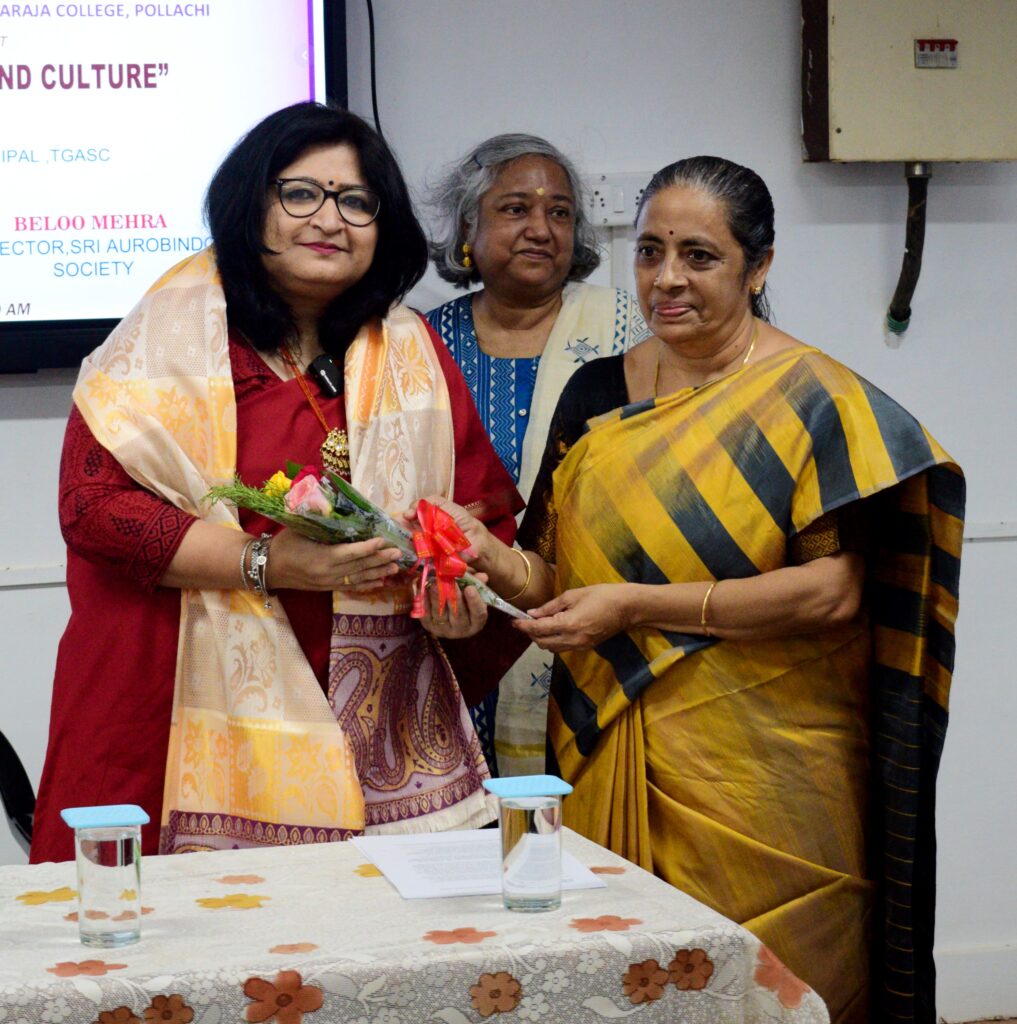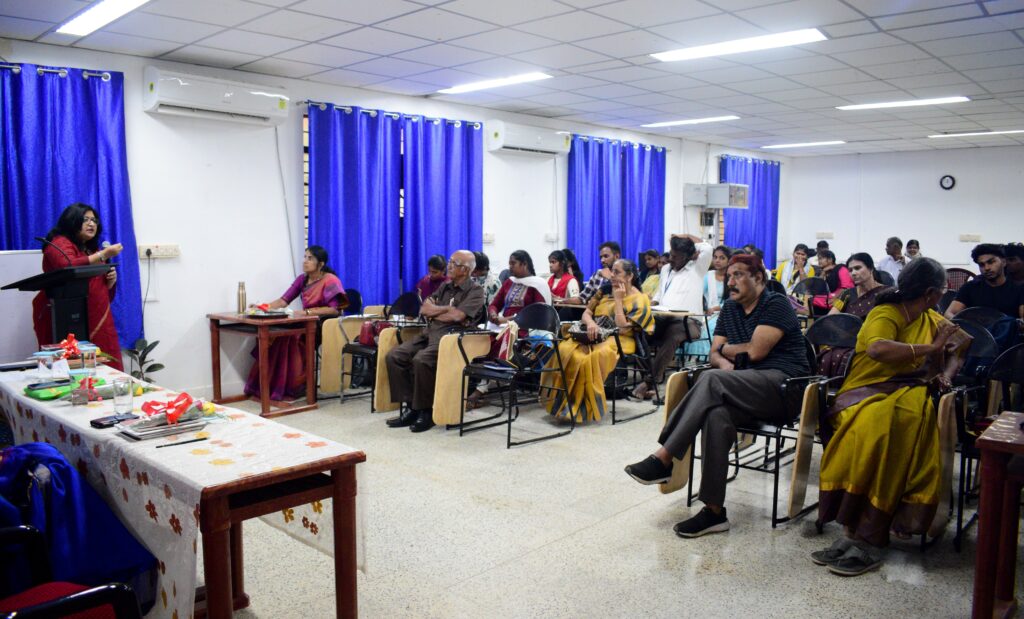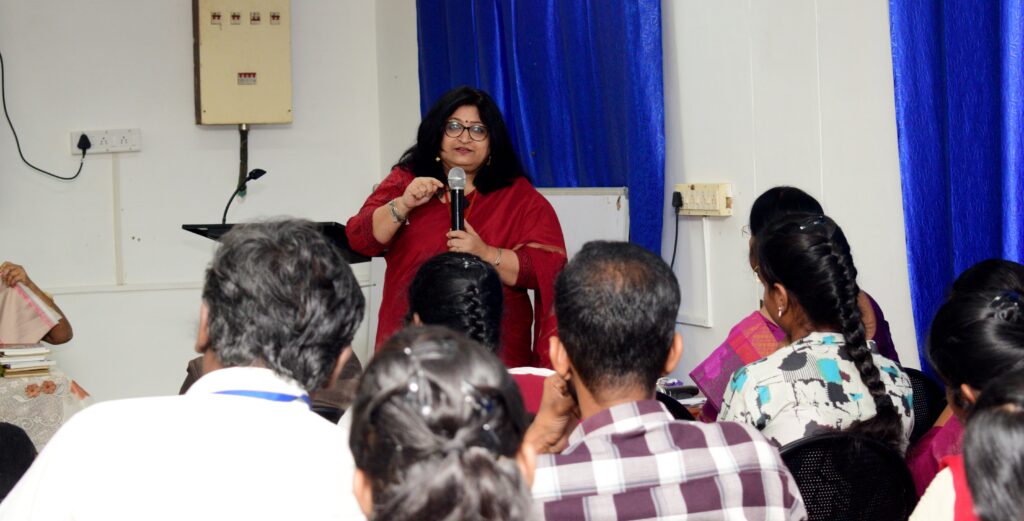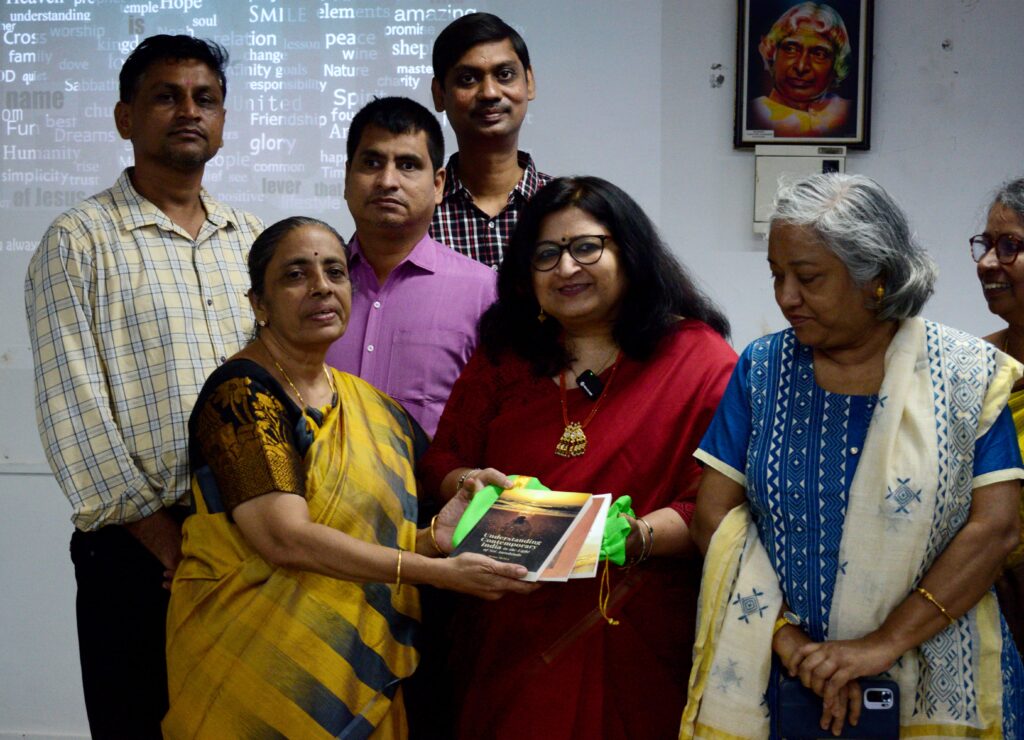Date: September 13, 2024
Venue: Tagore Government Arts and Science College
Watch the RECORDING
On September 13, 2024, Dr. Beloo Mehra, Director, BhāratShakti was invited to deliver a talk on the topic – Decolonizing Indian Cultural Studies with Sri Aurobindo. This program was organized by the Department of English, Tagore Government Arts and Science College, Pondicherry in collaboration with the Department of English, Sree Saraswathy Thyagaraja College, Pollachi under the title -Understanding India: Its Art and Culture.
The lecture was attended by a group of 60 students and faculty members from the two colleges. The talk was also livestreamed for other students at Pollachi who could not travel to Pondicherry.
The welcome address was delivered by Dr. A. Kala, Head of the Dept of English, Tagore College. Dr. Rita Nath Keshari, Retd. Professor from Tagore College, introduced the speaker.
FULL PHOTO GALLERY



Dr. Mehra began her talk by thanking the organizers and the students. She consciously kept her talk simple so that more students – who were primarily enrolled in a Bachelor’s programme – could relate to and easily follow the concepts. She gave plenty of examples as she elaborated upon the need for decolonizing our thought-structures, our mental frameworks and also our conceptual understanding of several basic ideas that form our view of Indian culture. She took up the very words, nation and culture, and using Sri Aurobindo’s view explained how we arrive at a more India-centric understanding of these concepts. She illustrated the definition of culture given by Sri Aurobindo with concrete examples that students could relate with.
Throughout her presentation, Dr. Mehra showed pictures of some remarkable places in India which demonstrate the uniqueness of India’s great prowess in art and culture. Some of the students could recognize these places and talking about these examples made the session more interactive and livelier.


In the Q & A session following her lecture, Dr. Mehra was asked a question about why be concerned about decolonizing in the age of globalization. In her response, Dr. Mehra spoke about the true understanding of globalization which is possible only when different cultures and civilizations meet on equal footing – each confident in its own view of life, existence, aim of life, etc. It is not possible when some cultures are being explained through the lens of other more dominant paradigms which at present are primarily Euro- or West-centric. She also elaborated upon the need for widening of the consciousness if the ideal of vasudhaiv kutumbakam has to become a living reality.
The session was appreciated by all. Dr. Mehra was invited to conduct more such sessions and workshops for the students in future. As a token of gratitude and appreciation, Dr. Mehra presented copies of three of her books to the Department of English.
